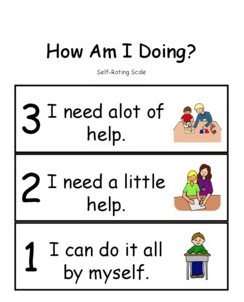
Operation Inspiration
New York City has had its share of colorful characters take up residence in Gracie Mansion, home to the New York City mayors since Fiorello LaGuardia (who was Jewish, by the way) moved in in 1942. Besides for LaGuardia, Mayor Abe Beame was Jewish, as was Mayor Michael Bloomberg, but today we’re going to talk about one more Jewish mayor of NYC – Ed Koch.
Ed was a friendly fellow who served as mayor from 1978-1989. He was known for a particularly interesting habit of walking up to New Yorkers on the street and asking, “How’m I doin’?” essentially asking for feedback on his job of being the mayor of New York. I’m sure he got lots of funny looks when he started, but he also gained love and popularity with his openness.
The idea of finding out where you stand is a good one. We know that Cheshbon HaNefesh is a fundamental idea of Judaism. However, what Ed Koch did, though lovable, was flawed. You see, he wanted to find out how he was doing as mayor so he asked other people their opinions. While their approval might have been valuable because they were voters, it was not a real barometer of his job performance.
As mayor of a city with millions of residents, he was responsible to weigh the needs and wants of each person or group against those of all the others. Just because one person or group approved of his decisions, that doesn’t mean they were an equitable fulfillment of his duties. His decisions might have been unpopular and still been the right choice for the city. On the other hand, people may have cheered his choices but they may have been very detrimental on the whole.
In truth, each of us can only judge ourselves as to our performance, because other people won’t necessarily know all the variables. We are the only ones who can determine whether we’re doing all we can and should be doing. What may look great to others may not really be so. Since they only see the externals, and they don’t know the internal challenges we may face or advantages we have, their approval or disapproval may both be wrong.
In the best of times, it is recommended that a person do a personal reckoning frequently. In turbulent times, it must be done more frequently and more rigorously. We must truly look inside, examine our actions, motives, and beliefs, and correct them if necessary. When there is a danger lurking for the community, we must each turn to our own actions and not point fingers at others since we truly don’t know who’s doing better in Hashem’s eyes.
There’s a famous moshol of a king who gave three subjects each a piece of land and told them to report back to him at the end of the season. The first one came and told the king his field produced thirty bushels. Pleased, the king gave him ten gold coins. The next came and said his field produced forty bushels. Extremely pleased, the king gave him an entire bag of gold coins. The next one stepped forward and said he’d produced fifty bushels, expecting a much better reward. This time, though, the king was angry at him and said he deserved nothing and that he was expected to return the plot of land.
Shaken and confused, the man begged for an explanation. “I did so much better than the other two farmers,” he said. “Why am I being punished?” The king explained. “Do you think you all had equal fields?” he asked. “The first farmer had an average field. It would normally produce thirty bushels and so it did. The second man, though, had a much inferior field. I expected him to produce ten or fifteen bushels but he produced forty! The only way he could have done that was with dedication and extraordinary effort. That’s why I was so impressed with him. He did his best for his king!
You, however, were given a very fruitful field. You should have been able to produce a hundred bushels. Because you only produced fifty, I can tell that you only half-heartedly worked the plot I gave you and you are not deserving of keeping it anymore!”
I don’t have to explain the parable and the ramifications if we don’t till the plot we’ve been given. What I will do is remind us all not to make the same mistake as the third farmer.
We cannot look superficially and compare our Torah and mitzvah observance to others. We have no way of knowing whether we’re doing well or not based on that. The only way to truly get a picture of where we stand is to look in a mirror and ask yourself – “How’m I doin’?” and be prepared for an honest answer.
© 2020 – All Rights Reserved
Did you enjoy this column? Feedback is welcome and appreciated. E-mail info@JewishSpeechWriter.com to share your thoughts. You never know when you may be the lamp that enlightens someone else.